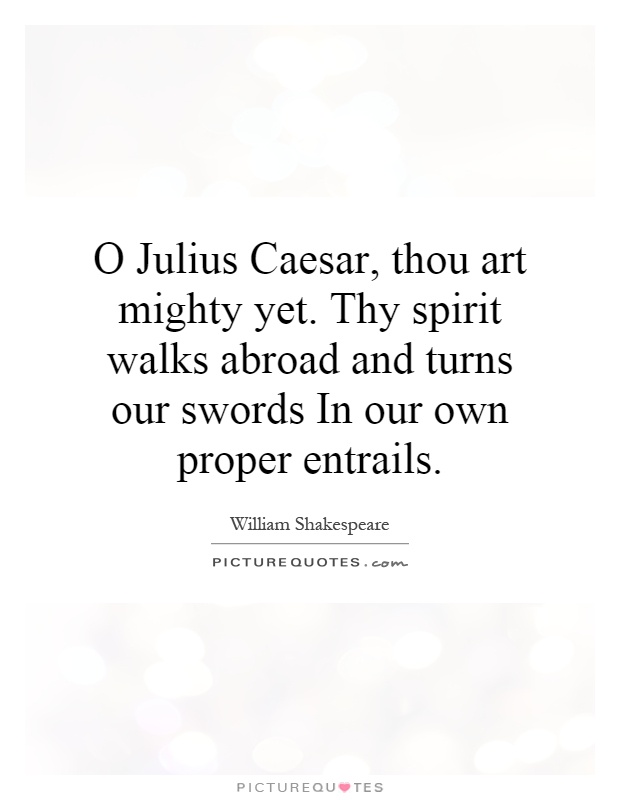O Julius Caesar, thou art mighty yet. Thy spirit walks abroad and turns our swords In our own proper entrails

O Julius Caesar, thou art mighty yet. Thy spirit walks abroad and turns our swords In our own proper entrails
In William Shakespeare's play "Julius Caesar," the character of Caesar is portrayed as a powerful and influential figure whose presence continues to be felt even after his death. The quote "O Julius Caesar, thou art mighty yet. Thy spirit walks abroad and turns our swords In our own proper entrails" reflects the enduring impact that Caesar has on the lives of those around him.The quote is spoken by Brutus, one of the conspirators who participated in the assassination of Caesar. In this moment, Brutus is reflecting on the consequences of their actions and the way in which Caesar's spirit seems to haunt them. Despite Caesar's physical absence, his influence is still very much present, causing turmoil and conflict among those who were once his allies.
The phrase "turns our swords In our own proper entrails" suggests that Caesar's spirit is causing the conspirators to turn against each other, leading to their own downfall. It is as if Caesar's ghost is manipulating them from beyond the grave, punishing them for their betrayal and sowing discord among them.
This quote also speaks to the theme of power and ambition in the play. Caesar's ambition and desire for power ultimately led to his assassination, but even in death, his influence continues to shape the actions of those around him. The quote serves as a reminder of the consequences of unchecked ambition and the way in which power can corrupt and destroy even the most noble of intentions.
Overall, the quote "O Julius Caesar, thou art mighty yet. Thy spirit walks abroad and turns our swords In our own proper entrails" captures the enduring legacy of Caesar and the way in which his presence continues to impact the lives of those who were involved in his downfall. Shakespeare masterfully explores the complexities of power, ambition, and betrayal in "Julius Caesar," making it a timeless and thought-provoking work that continues to resonate with audiences today.












 Friendship Quotes
Friendship Quotes Love Quotes
Love Quotes Life Quotes
Life Quotes Funny Quotes
Funny Quotes Motivational Quotes
Motivational Quotes Inspirational Quotes
Inspirational Quotes